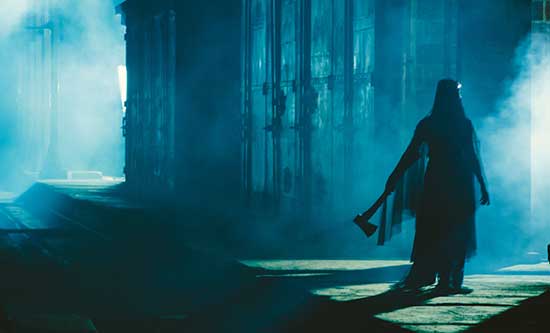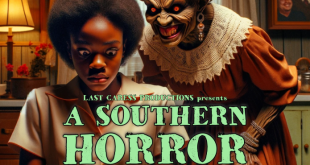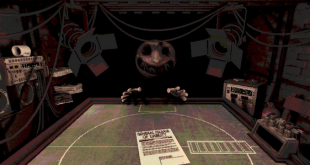Introduction: The Evolution of Horror in Video Games
The realm of horror in video games has undergone a remarkable evolution since its inception. From the early classics like “Resident Evil” and “Silent Hill” to the sophisticated modern titles, the journey has been a thrilling one. This article delves into how horror genres have transformed video game design and the player experience, tracing the transition from the pioneers to today’s advanced games, and exploring the intricate relationship between game design and player psychology.
Defining Horror in Video Games
Defining a horror game involves much more than just the inclusion of ghosts and gore; it’s about crafting an experience that evokes fear, dread, and suspense. This is achieved through various sub-genres, each with its unique approach. Psychological horror, for instance, delves into unsettling the player’s mind with distorted realities and ambiguous storytelling, as seen in games like “Silent Hill.” Survival horror, like “Resident Evil,” emphasises the struggle to survive with limited resources in hostile environments, enhancing the feeling of peril.
Other sub-genres, such as action horror, blend traditional horror with fast-paced action, while adventure horror integrates horror themes into narrative-driven exploration. These sub-genres contribute their unique thematic depth, narrative style, and gameplay mechanics, going beyond mere scares to offer emotionally and psychologically engaging experiences. This diversity in design and storytelling sets horror games apart from other genres, providing a broad spectrum of fear-inducing experiences to players.
Game Design Elements Unique to Horror
Horror games are known for their masterful use of environment and atmosphere. Elements like dim lighting, haunting soundscapes, and eerie silence play a pivotal role in building a sense of dread. The pacing is meticulously crafted to create suspense, while narratives are woven to tap into deep-seated fears. Titles like “Alien: Isolation” demonstrate innovative design that sets horror games apart.
Player Experience and Psychology
Horror games uniquely engage with player emotions and psychology. They tap into the primal thrill of fear, turning terror into a form of entertainment. This genre pushes the boundaries of player immersion, especially with the advent of virtual reality (VR), making the experiences more intense and personal.
“The Walking Dead: Saints and Sinners” on Meta Quest stands as a testament to how virtual reality can amplify the horror aspects of a well known zombie-apocalypse universe. In this immersive experience, players navigate through dimly lit environments, with the limited visibility and sudden jump-scares from zombies lurking around corners significantly heightening the tension and fear. While some gamers have critiqued the AI of enemies as lacking sophistication, the game is still a hit among zombie genre enthusiasts. The VR setting adds a layer of intensity to the gameplay, even if the simplicity of incapacitating zombies becomes apparent over time. Ultimately, TWD: Saints and Sinners showcases the potential of VR in transforming a familiar narrative into a fresh and thrilling horror adventure.
Technological Advancements and Their Impact
Advancements in graphics and AI have significantly elevated horror gaming experiences. High-definition visuals bring terrifying worlds to life, while AI-driven antagonists adapt to player actions, creating unpredictable and chilling encounters. These technological leaps have transformed game mechanics, enhancing the overall horror experience.
Virtual Reality has been an incredible success in the horror genre. There are a huge number of content creators who stream the genre to their followers and these live streamers have had particular success when it comes to playing horror games. It creates such animated and exciting reactions that viewers enjoy and relate to. As the VR continues to develop, the games can only get more immersive and therefore more entertaining from a viewer point of view and player.
Iconic Horror Games and Their Influence
The horror genre has produced some iconic games that have left a mark on the industry. “Amnesia: The Dark Descent,” “Outlast,” and the enigmatic “P.T.” have not only redefined horror gaming but also influenced other media and popular culture. Horror has not just influenced the video game industry in terms of consoles but it also stretches to the casino industry and other forms of entertainment.
There are a huge number of slots, table games and more that take influence from the gorey horror genre we have all come to know and love. For those looking to delve deeper into frightening gaming experiences, can find free spin offers with Gambling.com on those games that take inspiration from horror lore.
Challenges in Horror Game Design
Designing a horror game requires a fine balance between instilling fear and ensuring an enjoyable play experience. Developers must masterfully craft suspenseful scenarios that captivate without leading to player frustration.
This involves innovatively using game mechanics, atmosphere, and narrative elements, while avoiding overused clichés and tropes to maintain originality and player engagement. The challenge lies in creating a game that is both terrifying and playable, offering a fresh, immersive experience that keeps players intrigued and invested in the genre.
Future Trends in Horror Gaming
The future of horror in video games looks promising, with emerging technologies like AI-driven dynamic storytelling paving the way for even more immersive experiences. The genre might see the rise of new sub-genres and experimental approaches that could further redefine horror gaming.
Conclusion: The Lasting Impact of Horror on Gaming
Horror games have undeniably transformed the landscape of video game design and player experience. Their unique position in the gaming industry is marked by their ability to evoke deep emotional responses and push technological boundaries. As we look forward, the ongoing evolution of horror in video games promises to continue its legacy of innovation and excitement.
 Horror News | HNN Official Site | Horror Movies,Trailers, Reviews
Horror News | HNN Official Site | Horror Movies,Trailers, Reviews







